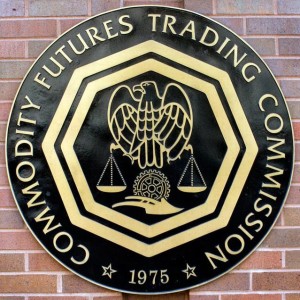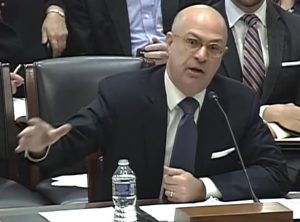 The Chair of the Commodities Futures Trading Commission invoked the bard in laying out in England his vision for cross-border swaps regulations.
The Chair of the Commodities Futures Trading Commission invoked the bard in laying out in England his vision for cross-border swaps regulations.
“Whereof what’s past is prologue; what to come, In yours and my discharge,” Christopher Giancarlo, the CFTC chair said, quoting William Shakespeare’s The Tempest.
Giancarlo was speaking at the Guildhall in London, England; the Guildhall is home to the City of London Corporation.
Giancarlo announced that the CFTC would soon release a white paper laying out a new vision for cross-border swaps regulation.
“I want to propose an updated and improved vision for cross-border swaps regulation by outlining for you the content of a White Paper I will publish in the near future. This White Paper will assess the CFTC’s application of its swaps rules to cross-border activities and make concrete recommendations for improvements.”Giancarlo stated. “In a number of areas, the White Paper will recognize deficiencies in the CFTC’s current approach to regulating cross-border activities and seek to recalibrate the CFTC’s cross-border approach based on a set of guiding principles. I will lay out these principles to you tonight.”
Cross border swaps regulation has been a priority of Giancarlo since the summer 2017, when Giancarlo did a tour of Europe to talk about swaps, specifically his concern that with Brexit, European regulators wanted to also audit swap transactions done in the US to provide a second set of regulation.

Ironically, Giancarlo included in his speech a series of mea culpa and one of those was CFTC’s imposition of its rules on non-US transactions.
Of the CFTC’s approach, Giancarlo noted, “It is premised on the incorrect assumption that every single swap a U.S. person enters into, no matter where and how transacted, has a direct and significant connection with activities in, and effect on, commerce of the United States that requires imposing the imposition of CFTC transaction rules.”
He noted later that such heavy-handed tactics alienate other countries and create tit for tat situations, “I recognized that if the CFTC overreaches we should not be surprised if non-U.S. regulators do the same – ‘turnabout is fair play.’”
As such, he called for a détente: “For this reason, in 2014, I called for a reset in the EU and CFTC cross-border regulatory relationship in the spirit of the Pittsburgh G-20 Accord. I repeat that call here.”
He called for cross-border swaps regulations 2.0.
With respect to the application of the CFTC’s swaps rules to cross-border activities, we can refer to these improvements as ‘Cross-Border Swaps Regulatory Version 2.0.’ The goal is to develop the next version of cross-border rules, which would be better calibrated to address systemic risk while fostering innovation, competition, and international cooperation.” Giancarlo said. “An improved framework should be engineered to better enhance market durability, increase trading liquidity, and stimulate broad-based economic growth and revival. Moreover, the CFTC should adopt proper and final cross-border rules rather than rely on less clear-cut interpretive policy statements or guidance.”
He said reform would also take these principles:
- The CFTC should recognize the distinction between swaps reforms intended to mitigate cross border systemic risk and reforms designed to address particular market and trading practices that are suitable for tailoring to jurisdictional trading conditions,
- The CFTC should pursue multilateralism, not unilateralism, for swaps reforms that are designed to mitigate systemic risk.
- The CFTC shall be a rule maker, not a rule taker, in overseeing U.S. markets – one marketplace, one set of trading rules, The CFTC should act with deference towards comparable swaps reform regulation in non-U.S. markets by adopting a flexible, outcomes-based approach for substituted compliance.
- The CFTC should act to encourage adoption of comparable swaps reform regulation in non-U.S. markets that have not yet adopted swaps reform for any significant swaps trading activity.








